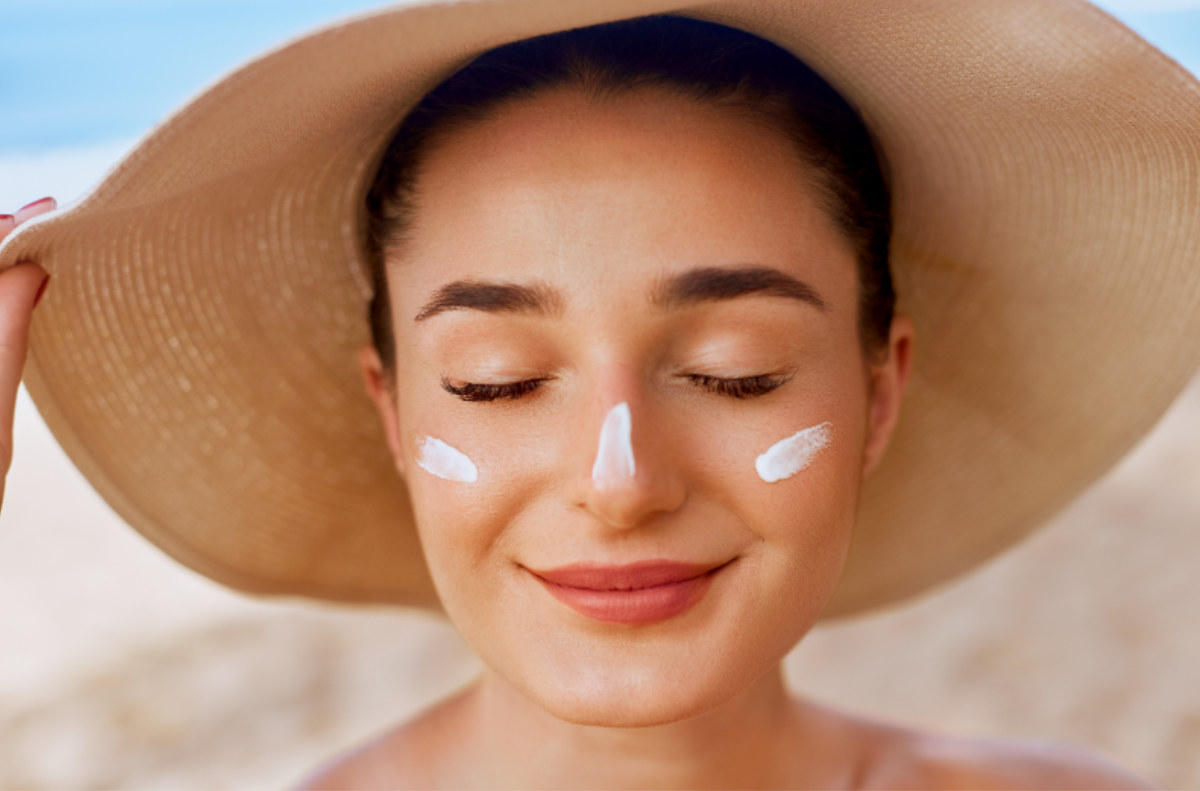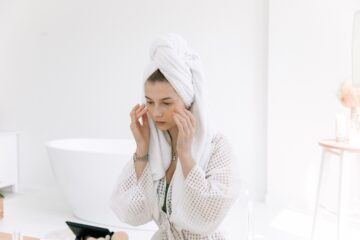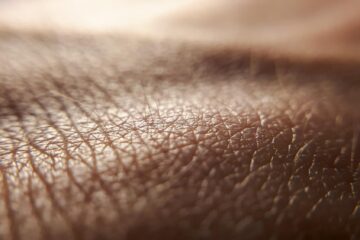Just a few days ago, the alarming results of a study were published, revealing the presence of various typical and potentially harmful chemical compounds found in cosmetics in samples of umbilical cord blood from newborn babies.
The study, conducted by the Institute of Environmental Diagnosis and Water Studies (IDAEA-CSIC), found up to 11 chemical compounds, including UV filters commonly found in sunscreens and parabens commonly used in cosmetic products, in the umbilical cord blood of 69 newborn babies in Barcelona. These compounds are transmitted from the mother to the fetus through the placenta, and this early exposure can have negative effects on fetal and infant development, being associated with endocrine disruption, reproductive problems, infertility, and childhood obesity.
What is an endocrine disruptor?
The body’s endocrine system is responsible for regulating the presence and proper levels of hormones in our body. There are chemical substances classified as endocrine disruptors that can mimic or block the actions of the body’s natural hormones, thereby disrupting the normal hormonal balance. These substances can be found in various products such as industrial chemicals, pesticides, personal care products, plastics, contaminated food, and water, among others, and can enter the body through inhalation, ingestion, or skin absorption.
UV filters and parabens: two common substances in cosmetic products associated with endocrine disruption:
UV filters
These are chemical substances used in sun protection products such as creams, lotions, and makeup to protect the skin from ultraviolet (UV) rays from the sun. These filters can be of two types: chemical filters, which modify our cells to absorb UV rays, and physical or mineral filters, which create an external protective film and reflect and scatter UV rays. Most sun protection creams available in stores and pharmacies contain these filters because they are very lightweight, easily absorbable, and invisible on the skin. You can recognize them by their names in the INCI or cosmetic ingredient list. Some common examples of chemical UV filters include oxybenzone, avobenzone, octinoxate, and octocrylene.
It is undeniable that these substances have countless benefits as they help protect our skin from harmful UV rays that can cause sunburn, premature skin aging, and increase the risk of skin cancer. However, with the significant advances in technological and scientific understanding, we are increasingly able to better understand the effects of products we apply to our skin, which were previously considered harmless. Some of these chemicals, such as oxybenzone or benzophenone-2, have been associated with disruptions in endocrine function, and their long-term negative effects on health may be much more significant than the benefits they provide. Fortunately, there are now alternatives to these compounds that can provide the same protection without the harmful side effects of these chemical substances.
What are parabens?
Parabens are a group of chemical compounds used as preservatives in a wide range of cosmetic products, including creams, lotions, shampoos, makeup, and deodorants. Parabens, such as methylparaben and propylparaben, are used to prevent the growth of bacteria and fungi in these products, thereby prolonging their shelf life. They have been widely used for their preservative capacity, which helps maintain the quality and safety of cosmetic products by preventing the proliferation of harmful microorganisms. Moreover, they are cost-effective and easy to use in industrial settings.
However, parabens have also raised concerns due to their potential ability to act as endocrine disruptors. It has been suggested that they may interfere with the hormonal balance in the body and be associated with health issues such as reproductive system alterations, hormonal dysfunction, and potential implications in the development of certain types of cancer. Although studies have yielded mixed results and the evidence regarding the risks of parabens is still uncertain, there has been a growing interest in finding safer alternatives in the cosmetic industry.
How to avoid these compounds?
By always choosing natural products. Nowadays, there is a wide variety of high-quality alternatives that consciously avoid chemicals in their formulation to provide safe and toxin-free products. It is important to learn how to recognize them and preferably choose products certified by independent entities that certify the origin of the ingredients, such as BioInspecta or Soil Association. This is because it is a poorly regulated sector where you can find products labeled as “natural” that may not truly be so. To ensure safety, it is better to choose a product certified by an independent entity.
How to properly choose your sunscreen for the summer?
It is important to be aware of the ingredients contained in the cosmetic products we use, and as summer approaches, pay special attention to our choice of sunscreen. We have compiled the four key points to consider when choosing your sunscreen:
1. Effectiveness: Not all sunscreen products are equal in terms of efficacy. When researching and reading labels, make sure the product you choose provides adequate protection against UVA and UVB rays and blue light. Look for products that offer broad-spectrum protection to cover all types of radiation.
2. Safe ingredients: Look for products that contain physical filters instead of chemical ones, such as zinc oxide and titanium dioxide in their non-nano formats, which are considered safe and effective. Avoid those that contain controversial or potentially harmful ingredients, such as chemical filters like oxybenzone and octinoxate.
3. Environmental respect: When choosing sunscreen products, you should also consider the environmental impact. Some common ingredients in sunscreens, such as the aforementioned chemical filters, are harmful to marine ecosystems and coral reefs. Look for “environmentally friendly” products or those that protect coral reefs. In Thailand or Mexico, chemical filters are banned due to their harmful effects on marine ecosystems.
4. Evaluations and opinions: Research expert evaluations and opinions, as well as the experiences of other consumers, to gather additional information about the quality and effectiveness of sunscreen products. You can consult specialized websites, review recommendations from dermatologists, or look for recognized approval seals.
In summary, when purchasing sunscreen products, look for those that offer adequate protection against UVA, UVB, and blue light, contain safe and effective ingredients, are environmentally friendly, and have good evaluations and opinions. By conducting proper research and making informed decisions, you can ensure effective and safe sun protection for your skin and the environment.
We recommend… Pearlescent Eco protect Sun & Age Shield by Eleven Obi
And it’s not just us saying it, this cream has been awarded the Beauty Shortlist Award and the Organic Clean Awards for the best sunscreen of 2023. Here’s why:
• It provides a broad spectrum of protection against UVA, UVB, and blue light, making it highly effective. Additionally, it contains a high content of antioxidants derived from natural vitamin C and E found in goji berries and pomegranate extract, which protect against air pollution and even out the skin tone, reducing pigmentation and blemishes.
• It offers eco-friendly physical filter protection instead of chemical filters. Unlike chemical filters that need to be absorbed by the skin and modify cellular behaviour from the inside to be effective, the physical filter protects from the moment of application by creating a reflective film as a shield against sunlight. Moreover, physical filters are less likely to cause irritations or allergies, making them the perfect choice for sensitive skin.
• Due to its composition, this sunscreen is environmentally friendly, protecting marine life and coral reefs.
• It does not contain nanoparticles, yet its texture is lightweight and pleasant, leaving no white residue.
• As for evaluations and opinions, you only need to look at the recognition seal it has been awarded. It is an excellent sunscreen that also hydrates and reduces signs of skin ageing. If you still have doubts, we recommend giving it a try—you won’t use any other sunscreen again!



